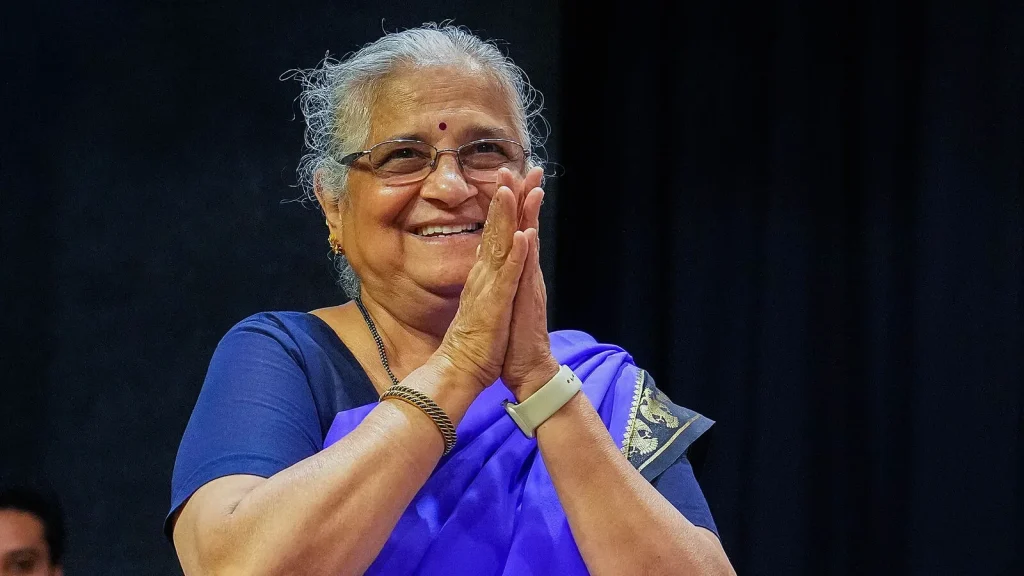Sudha Murthy, the renowned social worker, author, and Chairperson of the Infosys Foundation, recently shared her insights on the future of electric vehicles (EVs) in India. Emphasizing the need for robust infrastructure, she highlighted the importance of designing advanced electrical grids and establishing ample charging stations.

SudhaMurthy began by acknowledging the progress made in India’s transportation sector, citing the extensive and well-maintained road network overseen by the Ministry of Transport. However, she pointed out a significant issue: road transportation contributes to 40% of pollution. To combat this, Murthy advocates for a shift towards electric vehicles, which promise to reduce pollution and greenhouse gas emissions.
To make EV adoption feasible, Sudha Murthy emphasized several key areas of focus:
- Addressing Range Anxiety: One of the biggest hurdles for EV users is range anxiety,the fear of running out of battery before finding a charging station. To mitigate this, there must be an increased number of accessible charging points and solutions to manage long queues.
- Charging Efficiency: Cold weather can affect battery performance and charging efficiency. Therefore, it’s crucial to ensure that batteries are resilient and that charging facilities are well-equipped to handle various conditions.
- Electricity Production and Distribution: Reliable electricity is essential for the operation of charging stations. States need to ramp up their electricity production, whether through hydro, thermal, or nuclear sources, to ensure an uninterrupted supply for EVs.
- Battery Management Systems: Just as the heart is vital to the human body, the battery is central to electric vehicles. High-quality Battery Management Systems (BMS) and durable batteries are crucial for efficient performance.
Sudha Murthy also proposed the idea of manufacturing batteries locally in India, suggesting that this could lead to greater independence and innovation within the country.

Sudha Murthy’s call to action highlights the critical need for infrastructure improvements and technological advancements to support the growing electric vehicle market in India. Her vision includes a comprehensive approach to reducing pollution and enhancing the EV experience through better planning and local manufacturing.
